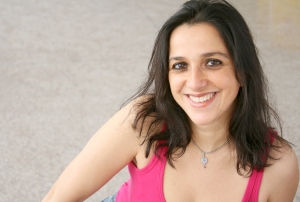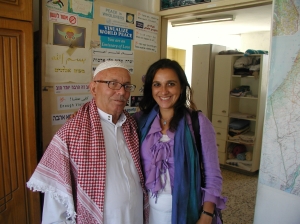La femme est l’avenir de l’homme…Woman is the future of mankind.
I remember this line from a famous song by Jean Ferrat, one of the most celebrated French poets and songwriters of the last half-century who passed away earlier this year and who was also one of the most politically engaged, giving his voice and support to all the oppressed of the world. In the wave of political feminism of the early 70s, his song almost became a symbol of the French Women’s Lib movement. Those were the years when Simone Veil, a French politician and Minister of Health of the time (unrelated to the other Simone Weil, the philosopher) courageously defended the first law legalizing abortion and providing social security support to women who needed to undergo this procedure. Despite all the political turmoil this debate created, the law was passed.
In retrospect, I realize that growing up in Paris in those years of post-68 “revolution” had an impact on me, even if I was too young at the time to realize it. By the time I was old enough to become politically engaged, the world had turned its back to the exaltation of the 60s and resolutely entered the Reagan/Thatcher era of conservatism, laissez-faire, and celebration of free trade and unregulated capitalism which was to mark the economics and politics of the next 30 years. The new preoccupation of the young generation was to make money, and since we were living in a material world, there was nothing else left than being a “material girl” as Madonna sang in those years. So much for the future of mankind…
I was not going to follow the flow, however. One thing was certain: I would not go to business school like so many of my peers. I would either become a famous opera singer, a great scholar or maybe a politician who would contribute to solving the great problems of the world. I studied economics and political sciences at the Institut d’Etudes Politiques while I was trained as a classical singer at the Conservatory. Eventually I had to choose and I opted for a doctorate in economics.
The Rio Summit on the environment and sustainable development had just been held in 1992, and I decided to devote my research and efforts to this fascinating field – the question of the century – and to examine the relationships between population, development and the environment. But I was certainly not going to be duped and bought in by the system just for a luxurious position in one of the temples of the world economic “order”… the World Bank. Rather, I looked to academia. Here I was, a post-doctoral fellow at Harvard University, another temple of the world “intellectual” order and very much connected with the economic one! But this is how I realized that you could live your whole life in an ivory tower, in this charming little village that is Cambridge, Massachusetts, without having any clue of what the real world is all about. I needed to feel more useful than writing papers that would be read at best by ten graduate students scattered around the world. I needed more action. And this is how, slowly and timidly at first, I embarked on my journey of questioning, discovery, and resistance, in the spirit of contestation of my dear French poets and revolutionaries.
Ten years on, and one child and one divorce later, where am I? My own personal ordeal of a very difficult divorce and custodial battle, of being a single mom removed from my family and cultural support, has helped me realize at a very deep, basic level what it means not to be in control of your life and to have decisions imposed on you that are not your own. This oppressive experience has instinctively connected me emotionally with people – individual and groups – that are subjected on a daily basis to injustices and to the dispossession of their lives and fates.
My work with civic organizations involved in peace building between Israelis and Arabs, and between Jews, Christians and Muslims, has taught me that the problems don’t stem from the individual level. Conflicts result not from “existential” hatred supposedly fuelled by incompatible values causing “clashes of civilizations,” but from the dispossession of the ones by the others – dispossession of key resources whose control is determinant in the shaping and strengthening of structures of power.
I believe that one of the blind driving forces behind most of these processes of dispossession and power is a fear of loss — a fear that is tempered with and dealt with by developing an insatiable desire of the ego to protect itself and to display predatory strategies towards others for self preservation. This hypertrophied ego is in majority male in essence, although many women have embraced the “male egotism” archetype and can be as predatory as the males they are in competition with, especially in power structures such as the corporate and financial world and politics. Such dynamics can also be found in the Middle East, where at the core of the conflict lies the excesses of hyper-male dominant cultures of both the Israelis and Palestinians. I believe that in order to durably solve this conflict, the values of compassion and empathy – traditionally considered as more “feminine” and mother-like in essence – must prevail.
It is not as an economist, statistician, and demographer that I intend to address this issue, as I believe that all the data in the world about the importance of girls’ education are not enough to change the world.
It is not enough to educate more girls and women if the tools that are given to them do not allow them to significantly challenge the social, economic and political order as it is, and as it produces and reproduces abuses of power, often to the detriment of women.
Women need to liberate themselves and the world from those abusive structures of power that are enslaving us all in a continuous cycle of dispossession, violence, power and conflict. The issue is not only quantitative – it is very much qualitative. What type of education, and what tools?
Through my journey as a scholar, then as an activist, I have found once more my voice as an artist, and music has been a powerful healer and vehicle of personal empowerment in my life. Art provides one of the means, if not the most important means, to empower people to find who they truly are and how much strength and power of conviction they have. The arts often address issues of injustice and oppression through tools that are both nonviolent and efficient, as they touch the heart first rather than the mind. Arguments of the mind can go in circles forever without finding any resolution, but if you touch the heart and soul of people, you win them for real and for good.
I have recently contemplated getting back into opera (perhaps a bit too late for that!) or at least singing for the causes I believe in and as an act of resistance. It took me many years to embark on my own into this journey of resistance, and reconnect with the spirit of contestation that had shaken the world in the years of my early childhood. But now at last, I am ready to sing, like Jean Ferrat used to, when I was just a little girl, “Le poète a toujours raison, qui voit plus haut que l’horizon, et le futur est son royaume… Face à notre génération, je proclame avec Aragon, la femme est l’avenir de l’homme…”(*)
Anne Marie
(*) “The poet is always right, who sees further than the horizon, and future is his kingdom…Facing our generation, I claim with Aragon, woman is the future of mankind.”
Aragon was a French poet – the quote “Woman is the future of mankind” is attributed to him.



Anne-Marie,
This is a very powerful and beautifully written narrative. I am concerned particularly about the backsliding of women’s status in too many societies around the world riddled with corruption, violence, and natural disaster. Territoriality and dispossession are age-old problems. Denying women and girl’s education, income, and the right to work are other challenges that seem to be escalating in many parts of the world rather than diminishing. However, there are some issues for which women have to take leadership and these issues are so obvious and troubling that it is shocking that very few experts discuss them. The first is population control. Back in the 1960s, the population ‘bomb’ was among the most talked about and pressing issues that the West, at very least, wished to address. China has addressed this issue with extremely restrictive policies; India has not addressed the issue and the result is a runaway explosion of population. Parts of South America and Central Asia are not far behind. The problems of dispossession and fear of loss — traditionally outcroppings of territoriality — an instinct as old as the apes — cannot be addressed if we cannot find ways to stabilize and reduce world population instead of allowing it to double within the next 30-40 years. Therefore, I believe one of the priority agendas for women is to find ways to spread the word about birth control in all its forms. I cannot see a planet recovering from drastic and catastrophic environmental stress without a concurrent reduction in the numbers of souls inhabiting the planet at one time. This is an agenda women have to embrace. And I am afraid that progressives are going to have to meet the problems of religious fundamentalism and misogyny head -on, which is going to include direct opposition to the agents of domination most of them male.
As women, we need to bring this issue to the forefront and act on it. In non-violent ways, women can start spreading the technology of birth control much more aggressively than we have. That is the only way to avoid destroying the earth and seas we depend on.
Pingback: Woman is the Future of Mankind « goddesspublications.net Blog
Pingback: High School Scholarships » Blog Archive » Announcing 40 Scholarships in Authentic Journalism in Mexico, May 2011
Pingback: 2010 in review | In Women's Hands
Shelley extolled the higher power of poetic insight in his famous “Defense of Poetry”:
What were virtue, love, patriotism, friendship—what were the scenery of this beautiful universe which we inhabit; what were our consolations on this side of the grave—and what were our aspirations beyond it, if poetry did not ascend to bring light and fire from those eternal regions where the owl-winged faculty of calculation dare not ever soar?
http://www.bartleby.com/27/23.html
Shelley was of course married to Mary Woolstonecraft, so it sort of fits.
Mary Wollstonecraft Godwin, excuse me (daughter of Mary Wollstonecraft and Wm Godwin)